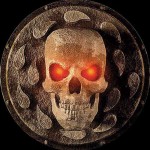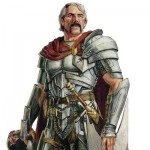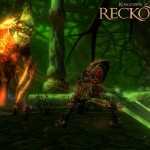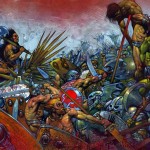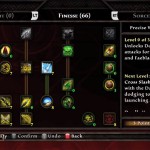At the end of my last posting I mentioned an insight into personal playing styles. Now I want to investigate it further and do a little personal reflection. The main lesson being: The better you know yourself, the better you can reflect your decisions and motivations. Even when designing games.
The insight goes like this I do not play in a way to have the most fun, but in a way to avoid the most pain. Sounds a bit negative, doesn’t it? But it’s rather subtle, and I’m wondering how many players of my generation had similar experiences. And how these experiences influence how we play games today. Or in the case of designers, how they influence the ways we design games today.
Let me tell you an anecdote I casually bring up nearly every time classic RPGs are mentioned: “I lost my mage to a crossbow bolt once, after already winning the battle. Mages at that time had a D4 hit die, so he went from perfectly fine to dead in the blink of an eye.” This anecdote is usually followed by exclamations like “You kids have it easy these days with your staff-wielding, health-regenerating combat mages.”
My childhood is permadead
Well, that is only part of the anecdote. The full story is this: As a typical fantasy nerd, I had only played mages up to that point. That included most videogames as well as regular D&D groups where I liked to create self-referential smartass casters (you know the type). This went up to a point where I had developed a kind of alter ego, which was used with small alterations in most groups I played with at the time. I was not alone in that matter. Some of my friends still use the game characters they developed when they were young, and their avatars age along with them as they get transferred from game to game.
Well, mine was killed on a field outside Nashkel. The game is, of course, Bioware’s Baldur’s Gate, and the ambush happened fairly early in the game. I already had a decent party and beat back the attacking critters without much trouble. The situation was under control. I wasn’t taking any risks and kept my frontline fighters competently healed. Then suddenly, my main character dropped dead. He had been hit by a single long-range bolt from a Kobold at the edge of the battlefield. And since these were the 90’s and the game a story-driven RPG, the dead of the main character means you lose the game and get to talk to the hand. Of course it does.
You kids have it easy these days
That sudden, random death of my character shocked me. I quit the game, choosing not to load a save file. When I finally went to play again, I began from the start and rerolled a cleric. Those can also cast. But more importantly, they get more hitpoints and are allowed to wear plate armour. It is a trend I have kept to this day. Not the cleric specifically, but the preference of very sturdy casters and trying to avoid combat whenever possible. Hey, other people never get over the death of a beloved pet. I lost an idealized version of myself to what felt like an accident. That should excuse a lot of strange behaviour.
The good news is that videogames lost more and more of their hardcore rulesets over the last decade. Today, you need to lose your complete party before getting an end screen. The main character, if there is one, still features prominently in talk pieces or cutscenes. But his or her critical role is no longer enforced by the game rules. I wonder how many dead mages it took to have RPG designers reach that epiphany. And what the clergy did to them, since the cleric class is conspicuously missing from many games for a time now. And I wonder what needs to happen to designers to have them drop the notion of inventory capacity based on character strength. Which would greatly help those weakly mages. And maybe, one day, I’ll exhume my character sheets and give my old avatar a new vessel.

